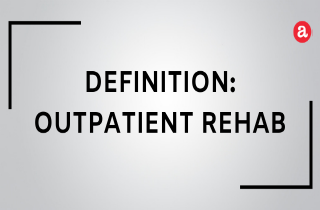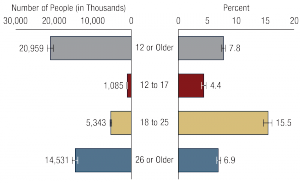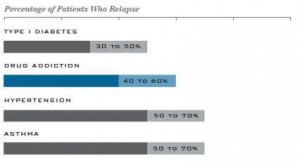FAQs – OUTPATIENT REHAB
ARTICLE OVERVIEW: Many people can benefit from an outpatient rehab, especially those with a high internal motivation for change. But are outpatient program right for here? This article reviews what you can expect from treatment, payment options, and typical duration. A full look into your options here.
TABLE OF CONTENTS
- What Is Outpatient Rehab?
- Who Needs It
- Kind of Rehabs
- Similarities
- Duration
- Privacy Issues
- Is It Effective?
- Average Costs
- Payment Options
- What To Look For?
- The Selection Process
- What to Expect
- Is It for Me?
- How Can I Make The Best Of It?
More Questions?
Q: WHAT IS OUTPATIENT REHAB?
A: Outpatient rehab is a form of addiction treatment that includes psychological, counseling, and educational sessions on the nature of addiction.
Outpatient treatment is designed for individuals who are highly committed to recovery and can handle living/working at home during the period of treatment. While less expensive than inpatient rehab, it isn’t for everyone, especially those who need to be REMOVED from their home environments.
During outpatient therapy, patients travel to a clinic, treatment facility, or hospital to attend sessions, but then they return home instead of remaining hospitalized.
More Addiction Blog Articles on outpatient program here:
- What is outpatient alcohol rehab?
- What is outpatient drug rehab?
- Outpatient rehab treatment: Who should attend?
Q: WHO NEEDS REHAB?
A: The goal of any rehab is to help people with substance use disorder turn their life around, and start living a drug-free life.
The National Survey on Drug Abuse and Health reported that in 2016, 22.5 million people aged 12 or older had a substance use disorders:
- 15.1 million people could be diagnosed with an alcohol use disorder.
- 7.4 million people could be diagnosed with an illicit drug use disorder.
In sum, this report showed that 1 in 13 people aged 12 or older needed addiction treatment. In fact, 21 million people needed substance abuse rehab program. The numbers divided by age include:
- 1.1 million adolescents aged 12 to 17.
- 5.3 million young adults aged 18 to 25.
- 14.5 million adults aged 26 or older.
So, if you’re facing an addiction problem…you’re in good company!
However, the risk of ignoring the problem comes at a price.
According to the National Institute on Drug Abuse, there were 64, 000 drug overdose deaths in 2016.
So, do you need help? Reach out today.
Don’t wait to become a number.
You can change your life. Addiction is treatable.
Q: WHAT TYPES OF OUTPATIENT PROGRAMS EXISTS?
A: The main types of treatment include partial, intensive, and aftercare programs.
1. Partial inpatient programs: This type of program does not require patients to live at the facility. Instead, the program requires daily attendance in treatment sessions that can last several hours every day. Some of the services provided in partial treatment settings include counseling, group, and individual therapies. This program could last few weeks up to several months.
2. Intensive outpatient programs, or IOP: IOP programs operate in community-based settings where patients come and go several hours per day, few days per week. This type of outpatient rehab is recommended for mild to moderate addiction treatment.
3. Aftercare program: Once you’ve finished an inpatient, partial, or outpatient program, you may continue to visit an aftercare outpatient program. Usually, this program is a step-down treatment, which means that you visit less frequently over time. It usually consists of counseling, and or support group communities.
Q: ARE OUTPATIENT ALCOHOL AND DRUG PROGRAMS SIMILAR?
A: Yes.
The basic program for outpatient rehab is usually the same, no matter your drug-of-choice. Some outpatient clinics may specialize in a particular type of drug treatment (such as opiates or stimulants), but substance abuse is generally treated similarly for cases of alcohol or drug abuse.
Q: HOW LONG DOES THE PROGRAM LAST?
A: Each outpatient rehab program is different.
Most programs require a minimum of around six (6) hours attendance weekly over the course of 10-12 weeks. Some more intensive outpatient programs may go up to twenty (20) hours of treatment per week. And weekend programs are usually about 6-10 hours of treatment on Friday evenings, Saturday – Sunday mornings. The National Institute of Drug Abuse suggests that outpatient rehab outcomes are more successful when an individual participates in rehab for 90 days or more, if needed.
More reading on program duration:
- Outpatient programs: How long?
- How long does outpatient alcohol rehab last?
- Intensive outpatient programs: What’s included?
Q: IS PRIVACY GUARANTEED?
A: Your medical files remain private unless court ordered otherwise.
In fact, a patient’s privacy is protected under:
- Health Insurance Portability and Accountability Act (HIPPA)
- Alcohol and Drug Abuse Patient Records Privacy Law
These laws protect your personal records on your payment, health information, and conversations between medical staff for your health condition.
Furthermore, medical clinicians are contracted under confidentiality law. But, if you are not sure that your information will stay private and anonymous, you may consider enrolling into a private program.
Q: IS IT EFFECTIVE?
A: Yes, rehabs are successful in helping people deal with substance use.
Rehab programs aim to help patients restart their life without substances. Programs teach us how to live life productively, rather than self-centered. According to the National Institute on Drug Abuse people that finish a program stop using drugs, and improve their physiological, social, and physical functioning.
Moreover, buprenorphine and methadone maintenance programs has been very effective in the addiction treatment. For instance, NIDA’s study howed that approximately 49% of people who were opioid dependent reduced Rx painkiller abuse during extended Suboxone treatment.
However, relapse rates do fall into the 40-60% range. This is similar to other chronic diseases including asthma, diabetes, and hypertension. You can always modify your program to your needs. If something don’t suits you, change it. After all, programs should be modified and evaluated all the time in order to be successful.
NOTE: Relapse is not a failure. Relapse is a chance to start over.
Q: HOW MUCH DOES IT COST?
A: To the best of our knowledge, we estimate outpatient treatment to cost, on average, about $135-150 per day.
Outpatient rehab costs can be affected by several factors such as:
- The length of the program.
- Type of the program.
- Number of sessions.
- Location.
- The amenities provided.
Some low-cost rehabs are subsidized through your state’s Department of Health and Social Services. These rehabs received federally funded voucher to offset direct costs to you. So, call your local, State Department of HHS for more information. Waiting lists are common.
In general, outpatient rehab programs are far less costly that residential rehabs, because you are not paying for food or accommodation.
Suggested reading on the topic:
Q: HOW CAN I PAY FOR TREATMENT?
A: Besides paying the full cost of rehab in cash, there are several options that can lower treatment costs and make it more affordable.
OPTION 1: The Affordable Care Act: Known as “Obama Care”, this law obligates insurance companies to offer mental health and addiction treatment coverage at an equal rate with other medical conditions, which means that your insurance company won’t be able to charge you a higher copay for addiction treatment than for the treatment of any other medical condition. You can apply for insurance coverage under the ACA here.
OPTION 2: Employee Assistance Programs: If your employer has an employee assistance program, they may help you with making treatment arrangements and paperwork related to insurance, Medicaid, or tax deductions. Check out your employee handbook or ask someone from the HR department for more details about mental health benefits.
OPTION 3: Private Health Insurance: Insurance is often the first option that can help you participate in a rehab program without it costing an arm and a leg. Note that not all of the services you receive may be covered with your insurance plan, but having a health insurance greatly lowers costs. Call your insurance company to make sure your treatment plan covers addiction and mental health treatment costs AND call the treatment provider to check whether they accept the kind of health insurance you have.
OPTION 4: Sliding Scale Payment: Some facilities may subsidize addiction treatment services based on your income. Be candid and ask the admissions staff directly about this option, especially if cost is a barrier to getting help.
OPTION 5: Medicaid or Medicare: If you qualify for Medicaid or Medicare, your treatment costs will be significantly lower and you may receive some types of treatment help for free, while your support group and counseling sessions may cost much less.
Let’s verify your coverage for treatment at an American Addiction Centers location. Your information is kept 100% confidential.
Q: WHAT TO LOOK FOR?
A: Accreditation, costs, distance, flexibility, and support.
An outpatient rehab program must include counseling services and oversee the use of medications (if needed), be safe, be flexible and adapt to your changing needs, and be able to deal with all aspects of your health and life.
Outpatient addiction rehab (like addiction itself) is unique and different for everyone. In fact, there is no one treatment approach that works for everyone. But, as treatment options are growing, how do you decide what kind of outpatient rehab will fit your needs best? Well, the first few mitigating factors that you should consider are:
1. Accreditation. Be sure that the outpatient rehab is licensed in your state to provide addiction treatment services. National accreditation programs include the Joint Commission, the National Committee for Quality Assurance, the Commission on Accreditation of Rehabilitation Facilities (CARF), and SAMHSA. You can be sure the inpatient rehab is listed with your State’s Department of Health and Social Services, as well.
2. Cost. Sobriety is priceless. While treating addiction is far more cost-effective than continuing the harmful habits, facing financial issues in early recovery may easily lead to a relapse. That’s why you should always consider all available options that can help you stay financially stable and functioning.
3. Distance. If you are living at home, going to work and traveling to a facility to attend sessions, it should be easy to get there and return back home. Long driving can impact your motivation to attend outpatient rehabilitation and pose as an obstacle for continuing treatment.
4. Flexibility. The flexibility of the treatment program is crucial for long-term success. Programs need to evolve as the patient’s needs change, and if a type of treatment is not suitable for you, the outpatient treatment provider should quickly switch to another treatment approach.
5. Support. A good outpatient rehab clinic should offer its patients support and assistance whenever they need it. Support is something that recovering addicts need, so they know they are not left alone to deal with withdrawal, cravings, temptations, or other triggers.
Q: HOW TO CHOOSE A PROGRAM FOR ME?
A: A custom-structured program is the way to go.
First of all, you need to believe inside that success is possible. Then, trust the program. Keep in mind that there is not only one solution, you need to find the one that best suits you. When choosing a program, understand the different options, and always go with a tailor-made program.
How to find it?
You can ask your family doctor to recommend or refer you to an outpatient rehab in your area, or you can do your own research when choosing the right rehab program. While doing your own research you can use the extensive listing of licensed and certified treatment facilities and narrow your search down to your state and local area.
To find addiction specialists and outpatient rehabs in your area:
- Talk to your doctor.
- Seek referrals from local mental health clinics, community health centers, and hospitals.
- Seek referrals by word-of-mouth.
- Search the American Psychological Association provider database.
- Search the national SAMHSA treatment directory.
- Search the the Directory of Single State Agencies (SSA) for Substance Abuse Services.
- Contact your health insurance company.
- Find out if your workplace offers mental health programs.
Q: WHAT HAPPENS DURING THE PROGRAM?
A: Outpatient rehab programs mainly provide one-on-one and group structured session. What normally happens is a combination of individual counseling and group work.
During outpatient rehab you usually meet in groups and will sometimes meet one-on-one with an assigned counselor. It’s really a lot like adult education night classes, only these programs specifically address addiction. You’ll be asked to share your thoughts and emotions frequently, and will be challenged to learn how to cope with life and how to get through difficulties without using drugs or alcohol. A typical outpatient program includes:
1. Screening and assessment.
When you enroll into rehab, the first thing you need to do is to undergo an initial screening and assessment. This process consists of tests and interview questions that will help professionals get to the root of your substance use problem, and to plan custom interventions. You need to start this program without any drugs or alcohol in your system, so you need to complete detox before enrolling.
2. Psychological and behavioral treatments.
Most of the time spent in outpatient program is in psychotherapy. Usually, patients will spend several hours weekly in individual and group therapy. This step can last several weeks, to month, and sometimes even longer. It all depends on your personal needs.
3. Follow-up therapy
Once you complete the program, you will spend several weeks or months into an aftercare therapy that will help you deal with the triggers and stressors to maintain your sobriety.
Further reading here:
- Outpatient alcohol programs: What to expect?
- Intensive outpatient: What to expect?
- Outpatient alcohol rehabilitation: What’s included?
- Outpatient alcohol detox: Safety and duration
- Outpatient drug programs: Safety and duration
Q: IS IT FOR ME?
A: Rehab is for people who want to break the chains of addiction, and want to live a substance-free life.
If you are not sure that you may have a substance use problem, ask yourself these questions:
- Do you feel an urge to drink or use drugs?
- Do you have (financial, legal, or family) problems due to your substance use?
- Do you hide or lie about your use?
- Do you need excuses to drink or use drugs?
- Have you failed in quitting?
- Do you continue to use no matter the consequences?
If you answered ‘YES’, maybe it’s time to seek help from a professional. Also, check out this NIDA screening tool that can help you diagnose your addiction.
Q: HOW CAN I MAKE THE MOST OF IT?
A: Dedication and willingness to change will help you make the most of your program.
Facing the challenges of continuing a normal home and work life while being dedicated to recovery has its benefits AND down sides when compared to the more traditional inpatient rehab. Still, there is much you can do to increase your chances of success in outpatient rehab. Here is what you will need to make the most out of any rehab program:
- Actively resolve psycho-emotional issues.
- Attend support groups.
- Avoid people, places and other triggers.
- Be dedicated to recovery.
- Be motivated to change.
- Use all available resources to make progress.
Also, the support from your family and friends can help strengthen your program. So, make sure to enroll into a family therapy together with your loved ones.
More Questions?
Do you have any questions about outpatient treatment of addiction? Please post them in the comment section below. We will try to respond to you personally and promptly.












Related Posts